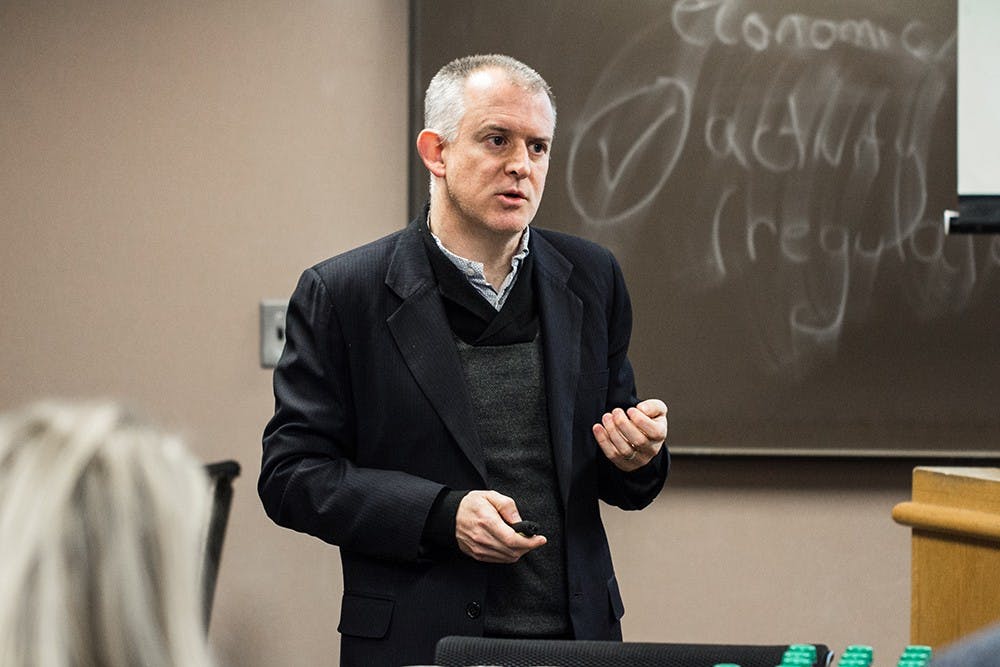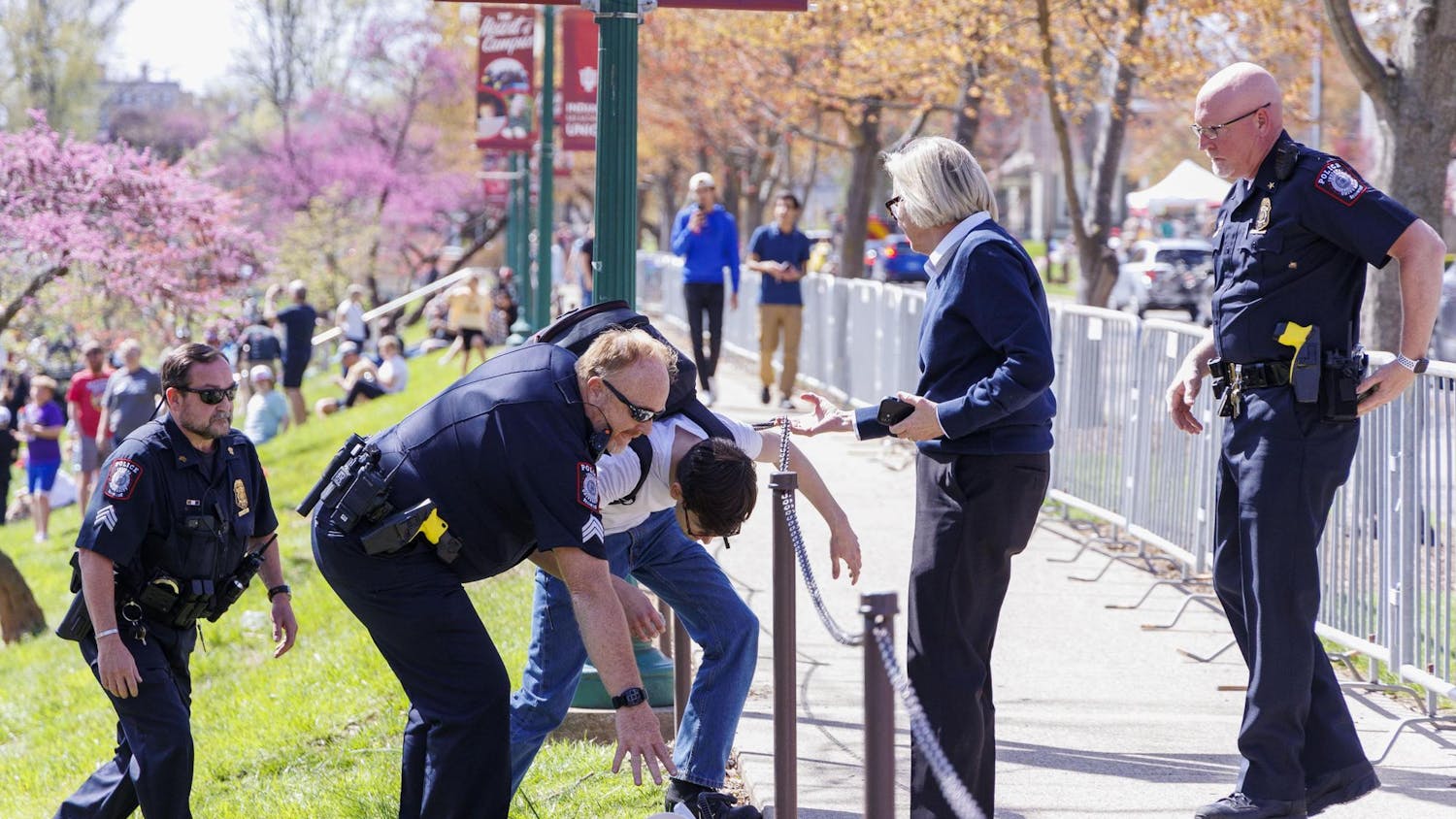After Arab Spring began with the democratization of Egypt, Reynolds said he felt he could finally produce a book that he would be ?happy with.
His book, “The Arab Spring: Pathways of Repression and Reform” then ?started to take effect.
On Thursday, Reynolds hosted a lecture discussion on the push of democratization throughout Arab Spring. Referencing his book, Reynolds used various countries that make up the Middle East as examples to explain the push, or lack of effort, toward the idea of democracy.
The lecture was sponsored by the Center for Constitutional Democracy under the IU Maurer School of Law.
“I do not consider myself an Arab world specialist,” Reynolds said. “I just attempt to show how political institutions can maintain stability around the world.”
Reynolds went into detail discussing the treatment of marginalized communities — particularly in the Arab world — and whether or not they have a seat at the table. In 2011, Reynolds was doing some advising work in both Egypt and Yemen and had a first-view account of the countries before and after the major changes as the aftermath of the Arab Spring.
Recalling the phrase “If you’re not at the table, you’re on the menu,” Reynolds said he believes there are a series of three factors that contribute to or deter countries’ abilities in forming a democratic parliament or governmental system in general.
Due to the extent of the uprisings in 2011-2014, the factors involved in determining democratic hope in authoritarian displacement and regime change are: how much the state was reliable on raw material resources such as oil, how hereditary ties played into leadership and state effectiveness.
“Regime change does not mean revolution,” ?Reynolds said.
He went through the main factors and broke them down into charts comparing various Arab countries with each other.
Qatar and Libya were considered oil-rich countries compared to the oil-poor countries of Syria and Jordan. Bahrain and Kuwait had hereditary regimes and Iraq and Qatar followed non-hereditary regime patterns.
The ability of the state to deliver necessities to their people, or state effectiveness, had to do with a combination of the previous two factors.
“There is also an interesting question on the level of civil society before regime change,” Reynolds said. “This is based on space permitted by the state.”
Various organizations and groups were formed in the states depending on the permission of their ?leadership.
From church or religious organizations, sporting clubs, labor unions, political parties to humanitarian organizations, the groups played some type of role in the efforts for mobilization.
“He (Reynolds) did a great job looking at the big picture and didn’t sensationalize the situation,” second-year law student Jarrett Baughman said. “We were given actual academic context of what we see on the news.”
Reynolds also pointed out the treatment of women and other marginalized communities is a great indicator for the hope of future democratic efforts. If a woman has no true power in society, no democracy can take place.
“The evolution of democracy is everywhere and has taken centuries,” Reynolds said. “It’s not going to happen overnight, especially when we are dealing with locked societies.”






